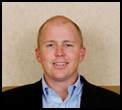"What’s striking instead is the exceptional, Enron-sized gap between this golfer’s public image as a paragon of businesslike discipline and focus and the maniacally reckless life we now know he led. What’s equally striking, if not shocking, is that the American establishment and news media — all of it, not just golf writers or celebrity tabloids — fell for the Woods myth as hard as any fan and actively helped sustain and enhance it.
People wanted to believe what they wanted to believe. Tiger’s off-the-links elusiveness was no more questioned than Enron’s impenetrable balance sheets, with their “special-purpose entities” named after “Star Wars” characters. Fortune magazine named Enron as America’s “most innovative company” six years in a row."
--Frank Rich, New York Times, Dec. 20, 2009
"A man hears what he wants to hear and disregards the rest."
--Paul Simon, "The Boxer", 1968
Frank Rich's [unusually apolitical] editorial in the
New York Times makes an interesting point: this past decade has been marked by our falling for egregious and sometime ludicrous hustles time and time again. In the first ten years of the 2000s, we have become a nation of suckers and patsies--your humble author very much included.
I went to University of Georgia to get my MBA in 2001 with the goal of graduating and getting a job at Enron because [hold your laughter please] they were widely heralded as innovators in non-fossil energy. But wait, it gets better....As the first questions about Enron's earnings began to arise, my Accounting professor at the time, who had been head of the
Financial Accounting Standards Board throughout the 1990s, explained to our class how the market had over-penalized Enron for its accounting error(s) and that he had bought a bunch of stock that morning to take advantage of the market's overcorrection. Within a month, the stock had cratered. Within three months, my professor was
testifying to the Senate Banking Committee about the ruse that Enron had accomplished.
While fooling me is no mean feat, fooling my Accounting professor is another matter--he not only knew the rules, he wrote a lot of them. Which brings me back to Tiger. The level of shock and attention this is receiving is a combination of three things:
1. His fame.
2. The spectacular nature with which this story broke--from his wife smashing the windshield with a golf club, to the endless parade of porn stars and cocktail waitresses that have come forward.
3. Our preconceived notion of what his personal life was like.
Yet, if you have ever been around celebrities or even read the tabloids for any period of time, you know that Woods' infidelities were the
rule for athletes and celebrities, not the exception. There is something within us that made us want to assume things about Woods' life despite our really only knowing one thing for certain about the man: he can knock the snot out of a golf ball. And while that singular certitude has no bearing on his personal life, we somehow translated his excellence in one thing to mean he maintained excellence in
all things.
The same way we wanted to believe in Tiger is the same way we want to believe that politicians, pundits, celebrities, advisors and other figures in our life are not serving their self interests. The fact of the matter is that it is the exceptional and rare person who is not serving his own self interest. The
entire study of economics is based on that fact. Yet, the only people we can all agree deserve to be viewed with a skeptical eye are are:
1. Politicians from the party that you don't vote for
2. Auto mechanics
The next few articles will focus on the likely factors contributing to our "suckertude" as a nation, including:
1. Conditioning: The principal in psychology that people generally believe what they are prepared to believe, rather than the most convincing array of facts and figures at a time
2. Trust: how it happens and why
3. Gullibility: what makes a person more likely to buy into fraud?
As we have found out over the last decade and beyond, these issues factor not only into marketing, but how we as individuals and organizations interact with and treat one another.
